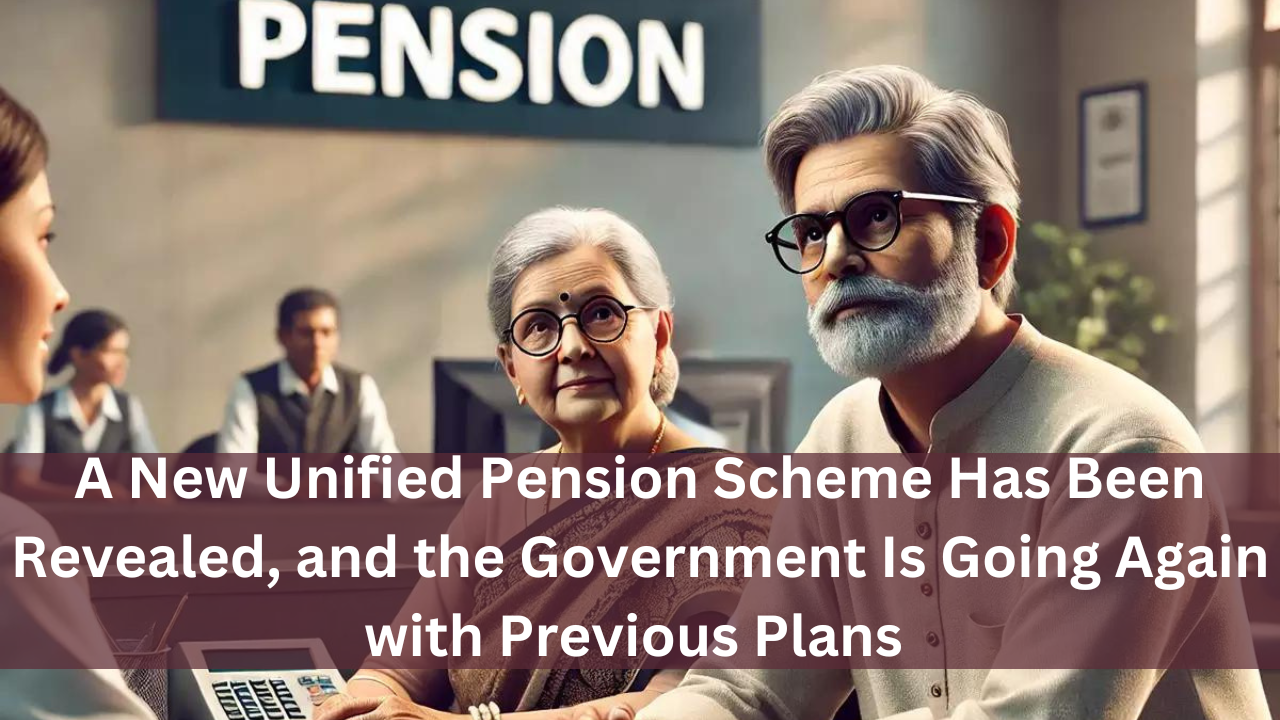A reform of India’s civil services pension system that had been boldly implemented by the Atal Bihari Vajpayee government for twenty-one years was reversed by the National Democratic Alliance (NDA) government on Saturday (August 24, 2024). The NDA government also introduced what it called a new “Unified Pension Scheme” (UPS), which is virtually identical to the Old Pension Scheme and guarantees government employees a monthly benefit equal to fifty percent of their most recent drawn pay for the rest of their lives.
The United States Pension System (UPS), which was approved by the Union Cabinet on Saturday (August 24, 2024), also guarantees that officials will receive a periodic increase in dearness relief that is in line with the trends of inflation, a family pension that is equivalent to sixty percent of a government worker’s pension in the event of their death, and a lump sum payout from their superannuation in addition to gratuity benefits when they retire. Additionally, it has been determined that individuals who have completed a minimum of ten years of service to the federal government would be eligible for a minimum pension of ₹10,000 per month.
In March 2023, a committee was established under the leadership of T.V. Somanathan, who had previously served as Finance Secretary and was now serving as Cabinet Secretary-designate. The committee’s mission was to examine the National Pension System (NPS), which was formerly known as the New Pension Scheme, for government employees in a manner that strikes a balance between “their aspirations and fiscal prudence.”
At that time, five states that were dominated by the opposition had transferred their employees from the National Pension System (NPS) to the Old Pension Scheme (OPS), which offered a guaranteed pension equal to fifty percent of their salaries. Pension distributions were tied to the aggregate value of contributions made by the government and the employee over the individual’s working life under the National Pension System (NPS), which went into effect for employees who joined the government service on or after January 1, 2004. Fund managers who are regulated by the Pension Fund Regulatory and Development Authority (PFRDA) invested these contributions in market-linked securities and other types of equity investments.
After the Cabinet gave its approval, Mr. Somanathan stated that state governments are willing to adopt the architecture of the UPS, which has been approved by the Cabinet to begin on April 1, 2025. He emphasized that the primary distinction between the OPS and the UPS is that the OPS liabilities were not funded and did not require any contributions from either the employees or the employer.
There will be a contribution scheme for the United Parcel Service (UPS), with employees contributing 10% of their salaries and the government contributing 18.5% of their salaries. Additionally, Mr. Somanathan indicated that the contributions made by employees will remain unchanged at the 10% threshold, however the contributions made by the government may be adjusted higher or lower depending on periodic actuarial assessments regarding the financing required to achieve the pledges made by UPS.
While the National Pension System (NPS) will continue to be an option, all employees who have joined the service since 2004, including those who may have retired since then, have been given the option to switch over to the more generous UPS. Mr. Somanathan estimated that it will be beneficial for approximately 99% of NPS members to move to the UPS. In addition to the gratuity benefits that will be provided to employees upon retirement, a lump sum payment has also been guaranteed to employees throughout this time period. For each and every six months of service that has been successfully completed, this lump payment will be equivalent to one tenth of the monthly emoluments (salary plus Dearness Allowance).
“We are proud of the hard work that all government employees have put in, as they have made major contributions to the advancement of the nation. The Prime Minister of India, Narendra Modi, emphasized in a post on X that the Unified Pension Scheme (UPS) provides government employees with both dignity and financial security, which is in line with our commitment to their well-being and a secure future.
Despite the fact that Mr. Modi had met with representatives of government employees earlier in the day, their responses to the Cabinet move were less from unanimous.
The Central Secretariat Service Forum expressed its satisfaction with the government’s realization of “a genuine need to ponder over NPS” and stated that the Unitary Pension System (UPS) would be improved with an assured pension. The forum, on the other hand, came to the conclusion that it would continue to demand its “one and only demand,” which was the OPS, signaling that they were not in favour of salary deductions in the UPS.
Shiv Gopal Mishra, the secretary of the Joint Consultative Mechanism (JCM), which is a mechanism between the central government and its employees, stated to The Hindu that they were pleased with the UPS. He also mentioned that the Prime Minister had indicated that they will have better coordination with the staff during their meeting that lasted for an hour in the evening.
His colleague in the JCM, C Sri kumar, who is the general secretary of the All India Defence Employees Federation, had a different opinion. Because of our agitations, this has come about. We, however, are not content. The United Parcel Service ought to be non-contributory, he stated, adding that they will wait for the actual notification before determining the entire impact of the situation.
At the same time that the Prime Minister had secured a well-consulted result that will promote “inter-generational equity,” the Information and Broadcasting Minister Ashwini Vaishnaw pointed out that Congress-ruled states that had proclaimed a return to the OPS had not yet implemented it.



